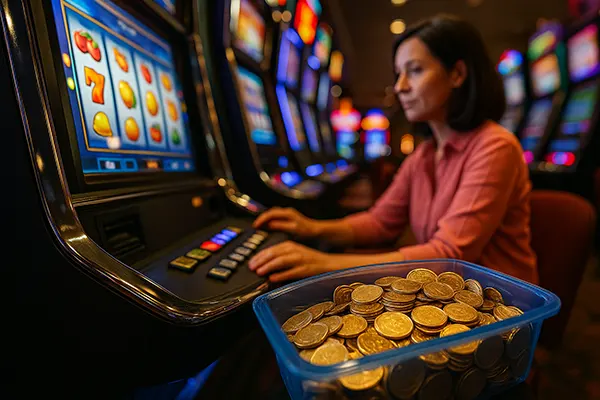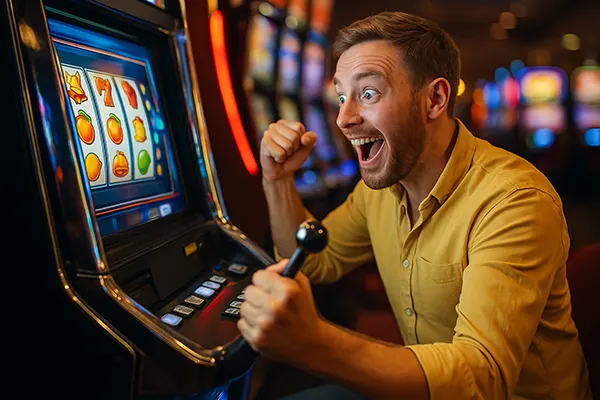Funniest Jackpot Wins in History: When Luck Struck Unexpectedly

Life has a way of surprising us, and nowhere is that more evident than in the world of gambling. While most wins come from strategy or persistence, some of the biggest jackpots in history happened by pure accident. These stories remind us that luck doesn’t always knock — sometimes it barges in when least expected.
The Accidental Millionaire from Australia
In 2017, a man from Sydney logged into his usual online account, intending to play a game he was familiar with. However, due to a misclick, he accidentally launched a high-volatility progressive slot. Instead of closing it, he decided to “spin just once.” To his astonishment, that single spin won him over 10 million AUD. He had never played that game before and admitted he didn’t even know what the jackpot feature meant.
The player chose to remain anonymous but confirmed in local interviews that he had no gambling strategy — in fact, he considered himself ‘unlucky’ in games. He reportedly used the money to pay off debts, buy a modest home, and invest the rest conservatively. His story went viral, becoming one of the most talked-about wins in Australia.
This event sparked debates in gambling forums about whether ‘novice luck’ could be a real phenomenon or just media exaggeration. Regardless, the win remains a prime example of how unpredictably fortune can strike.
How a Misclick Turned Into Millions
Misclicks usually result in minor mistakes, but in the world of online slots, they can change lives. The Sydney man admitted he was actually looking for a low-stakes poker game. Instead, he found himself in a high-stakes jackpot slot with one of the biggest prize pools in the region.
Psychologically, this reflects how random actions can override our usual decision-making processes. He didn’t plan, strategise, or prepare — yet his unintended action yielded one of the most lucrative wins in Australian gambling history.
Interestingly, the online operator confirmed that the jackpot wasn’t rigged or influenced — the win followed all RNG (Random Number Generator) protocols. It was, quite simply, a statistical fluke — a one-in-a-billion spin.
Random Bets: Do They Ever Pay Off?
The question often arises among casual gamblers: can you win big with a random, even careless, bet? Statistically speaking, the odds remain the same on any given spin or draw — but randomness plays a role when bets are placed without any strategic intent.
Take the case of a man in Germany who, after a night out, decided to play the lottery using numbers from a beer coaster. That slip of paper, smeared with ale, gave him €23 million. Another example is a student in the UK who hit a bingo jackpot of £1.2 million on a mobile app while trying to show her grandma how to install the game.
These cases highlight that while randomness doesn’t improve your chances, it doesn’t hurt them either. The systems are built on equal probability — the real difference is often psychological, not mathematical.
The Role of Intuition and Impulse
Many such wins are triggered by spur-of-the-moment decisions. Behavioural scientists suggest that in gambling, spontaneous decisions activate dopamine-rich regions of the brain. These areas are linked to risk-taking, and in rare cases, they align with statistical improbabilities to create jackpot moments.
Impulsive betting is not a strategy anyone should rely on, but in historical hindsight, it has occasionally produced massive payouts. While professionals trust calculated risks, these ‘gut feeling’ moments are a staple of jackpot folklore.
Ultimately, randomness doesn’t discriminate. Whether the bet is placed after careful consideration or on a whim, the outcome — especially in games of pure chance — remains governed by luck.

Luck or Probability: Understanding the Phenomenon
From a psychological standpoint, people often perceive random outcomes as patterns, attributing meaning to coincidences. This is known as ‘apophenia.’ In gambling, such cognitive biases are frequent. Winners often believe they had a “feeling” about the win — but was it luck, or did they simply forget the dozens of times they didn’t win?
Studies conducted by behavioural economists show that people remember wins far more vividly than losses. This recall bias contributes to the myth of ‘lucky numbers’ or ‘lucky days.’ In reality, the probability remains fixed, but human perception skews the memory of odds.
For instance, research in the Journal of Gambling Studies (2024) confirmed that 89% of jackpot winners had no coherent betting strategy. Most simply played irregularly or tried games for entertainment, not gain. Yet, the belief in personal luck persisted even after random wins.
The Psychology of “Being Lucky”
Richard Wiseman, a British psychologist, argues that people who consider themselves lucky are more observant, open to opportunities, and resilient in the face of failure. In gambling, these traits might not increase odds — but they affect how players respond to outcomes.
Feeling lucky can boost mood and confidence, which may encourage players to continue playing — though this can also be risky behaviour. Understanding this psychological effect helps explain why so many accidental winners feel their success was “meant to be.”
Wiseman’s findings suggest that ‘luck’ is not just about chance but about mindset. Those who interpret life’s events positively often view random occurrences as part of a personal lucky streak — reinforcing their belief system after unexpected wins.
